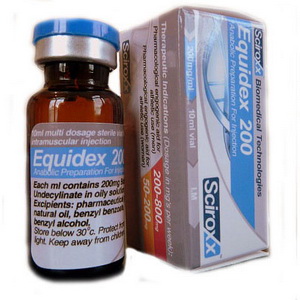Dexacortyl vet
Dexacortyl vet can be purchased through veterinary clinics, online veterinary pharmacies, or authorized veterinary medication suppliers. Since Dexamethasone is a controlled substance in many areas, a prescription from a veterinarian is often required. Make sure to consult your vet before buying this product, as they will also advise on the correct dosage and administration for your horse’s condition.
Monitoring:
Regular Veterinary Checks: Horses on Dexacortyl, especially for extended periods, should have regular veterinary checkups to monitor for signs of side effects like laminitis or gastrointestinal issues.
Bloodwork: Periodic blood tests may be recommended to monitor liver and kidney function, as long-term corticosteroid use can affect these organs. Dexacortyl vet
Differences Between Dexacortyl and Other Corticosteroids:
Dexacortyl vs. Dexa Plus or Dexa G Rapid: Dexacortyl contains only Dexamethasone and is similar in its anti-inflammatory effects. However, unlike Dexa G Rapid, which also contains an antibiotic (Gentamicin), Dexacortyl does not address bacterial infections.
Duration of Action: Depending on the formulation, Dexacortyl may have a slightly different onset or duration of action compared to other Dexamethasone-containing products.
Composition:
Dexamethasone: The active ingredient, a corticosteroid that helps reduce inflammation, swelling, and immune system activity.
Dexacortyl Injection Administration:
Form: Dexacortyl is typically administered as an injectable solution.
Dosage: The dosage varies depending on the condition being treated, the horse’s size, and the severity of the disease. A veterinarian will determine the proper dosage for your horse.
Route: Intramuscular (IM), intravenous (IV), or intra-articular (directly into the joint) injections are common.
Mechanism of Action:
Dexamethasone works by inhibiting the body’s inflammatory response. It blocks the production of substances in the immune system that cause inflammation, such as prostaglandins and leukotrienes. It also suppresses the immune system to reduce excessive immune reactions, which can be beneficial in cases of autoimmune disease or severe allergic reactions.
Side Effects:
While Dexacortyl is effective in treating inflammation and immune-related conditions, it can have several side effects, especially with long-term use:
Laminitis: One of the most significant risks of prolonged or high-dose corticosteroid use in horses is the development of laminitis, a painful condition affecting the hooves.
Immunosuppression: Long-term use can weaken the immune system, increasing the horse’s susceptibility to infections.
Delayed Wound Healing: Corticosteroids can interfere with the body’s natural healing process, slowing down wound repair. Where to Buy Dexacortyl Injection
Increased Thirst and Urination: Some horses may experience increased thirst (polydipsia) and urination (polyuria).
Gastrointestinal Problems: Prolonged use may lead to gastric ulcers or colic.
Muscle Wasting: Long-term use can result in muscle wasting or weakness.
Behavioral Changes: In some cases, horses may exhibit behavioral changes like irritability or hyperactivity.
Dexacortyl Injection
Veterinary Supervision: Always use Dexacortyl under the supervision of a veterinarian, especially when determining the appropriate dose and duration.
Short-Term Use: It is generally recommended for short-term treatment to minimize the risk of side effects like laminitis and gastrointestinal issues.
Pregnant Mares: Use in pregnant mares should be approached with caution, as Dexamethasone can induce abortion or premature birth if used late in pregnancy.
Pre-existing Conditions: Horses with conditions like gastric ulcers, metabolic disorders, or infections may need alternative treatments or careful monitoring if Dexacortyl is used.
Contraindications:
Systemic Infections: Dexacortyl should not be used in horses with systemic bacterial, viral, or fungal infections unless they are on appropriate anti-infective treatment.
Hypersensitivity: Horses allergic to corticosteroids or any of the ingredients should not be given this medication.
Dexacortyl Injection Uses in Horses
Inflammatory Conditions: Dexacortyl is commonly used to treat inflammation associated with musculoskeletal disorders like arthritis, bursitis, and tenosynovitis.
Allergic Reactions: Useful in managing severe allergic reactions caused by insect bites, environmental allergens, or food allergies.
Respiratory Issues: It is used to treat horses with inflammatory respiratory conditions like chronic obstructive pulmonary disease (COPD), also known as heaves.
Autoimmune Diseases: Helpful in managing conditions where the horse’s immune system attacks its own tissues, such as immune-mediated diseases.
Shock and Trauma: Can be administered during acute episodes of shock or trauma to help stabilize the horse and reduce inflammation.
Skin and Eye Conditions: Sometimes prescribed for inflammatory skin diseases or conditions like uveitis, an inflammatory eye disease in horses.
Where to Buy Dexacortyl Injection
Dexacortyl Injection is a veterinary medication containing Dexamethasone, a potent corticosteroid widely used for its anti-inflammatory, immunosuppressive, and anti-allergic properties. It is primarily used in horses and other animals to treat various inflammatory, allergic, and autoimmune conditions. Where to Buy, Dexacortyl vet Dexacortyl Injection, Dexacortyl Injection Uses in Horses




Reviews
There are no reviews yet.